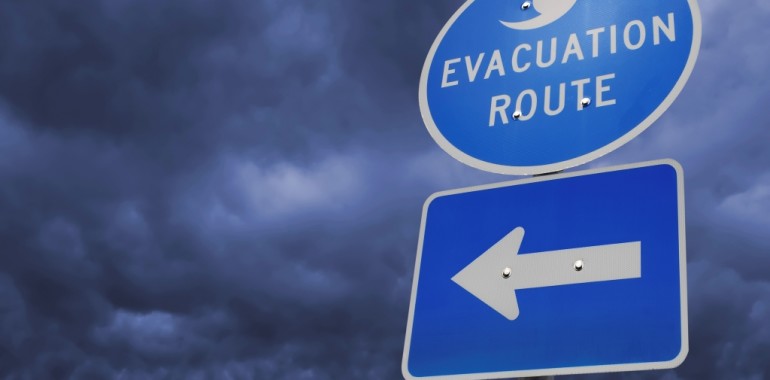As the Tampa Bay community is preparing to deal with the potentially damaging winds and rain related to the severe storms heading this way, local officials want everyone to remember that preparedness is key. Depending on the severity of the storm, residents might experience utility interruptions, blocked or flooded roads, and other inconveniences.
The list below is intended to help you deal with certain inconveniences the storm could create and to mitigate damage to your personal property.
Prepare for the Storm
- Listen to the advice of local officials and be prepared to evacuate. Local officials may ask you to leave if they believe your community is at risk from flood waters.
- Monitor local TV, radio and the NOAA weather radio for warnings. Make sure you have batteries for your radio!
- Remove furniture, planters, and other objects that can blow around from your balcony and outdoor areas.
- Have cash on hand for post-storm needs, such as paying for food or emergency supplies.
- Fill your car with gasoline.
- Make provisions for your pets!
- Have an emergency preparedness kit:
- Water for seven days or approximately four gallons
- Food for seven days in your household; food for three days to take with you if evacuated
- Ready-to-eat canned meat, fruits, and vegetables (with manual can opener) and other high-energy foods such as peanut butter, crackers, and candy bars
- Blankets, sheets, and pillows
- Flashlight and batteries
- Battery-operated radio
- Medication (30-day supply) including prescription and non-prescription drugs (aspirin, antacids, etc.)
- Paper towels
- Toilet tissue
- Ziploc freezer bags
- Disinfectant
- Bug spray
- Deodorizer
- Wet wipes
- Important paperwork (health insurance cards; addresses and phone numbers; titles to cars and boats; bank documents including savings, checking, and securities)
During the Storm
- Stay indoors during the storm and away from windows and glass doors.
- Close all interior doors; secure and brace external doors.
- Keep curtains and blinds closed. Do not be fooled if there is a lull; it could be the eye of the storm — winds will pick up again.
- Take refuge in a small interior room, closet, or hallway on the lowest level.
- Follow the direction of local emergency personnel.
- Stay tuned to your radio for the latest information.
- Disconnect all minor electrical appliances.
- Lay towels along the bottom of sliding glass doors to absorb water.
- If you have an emergency, dial 911.
Immediately after the Storm
- Use caution when traveling outside; beware of downed power lines that still might be energized.
- Remember that tap water for drinking and cooking may only be used under the guidance of local health officials.
- Stay out of any building if flood waters remain around the building. Flood waters often undermine foundations, causing sinking; floors can crack or break, and buildings can collapse.
- If evacuation is required, do not enter buildings until local officials have said it is safe to do so. Buildings may have hidden damage that makes them unsafe. Electric or waterline damage can create additional hazards.
Helpful Links
FEMA
http://www.ready.gov/
NOAA Hurricane Center
Red Cross

